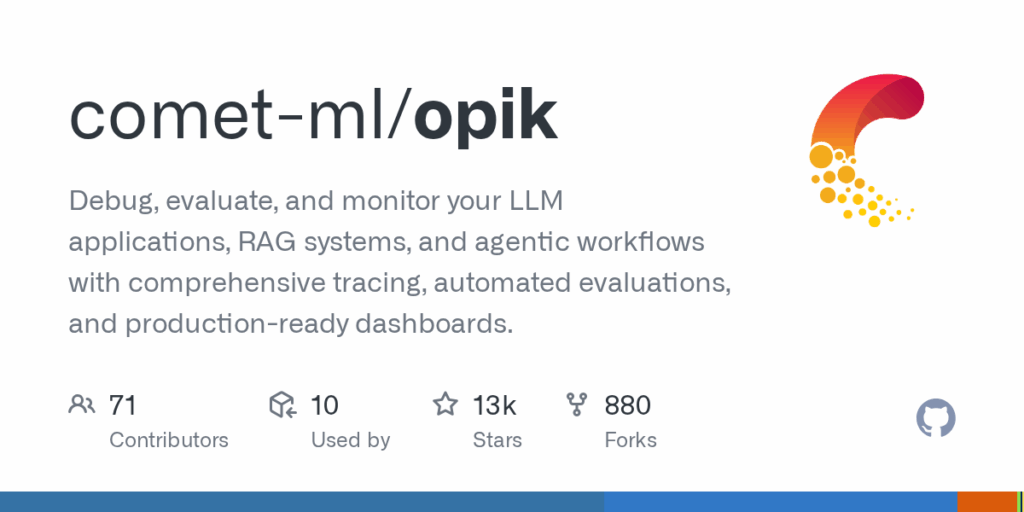Features
Opik includes deep tracing of LLM calls and conversation logs, the ability to annotate traces and spans with feedback scores, and a Prompt Playground for prompt experimentation. It ships SDKs for Python, TypeScript, and a Ruby OpenTelemetry option plus a REST API. Evaluation tools include dataset and experiment management, LLM-as-a-judge metrics and heuristic metrics for tasks like hallucination detection and moderation, and a PyTest integration for CI/CD. Production features include high-volume trace ingestion, dashboards for monitoring feedback, trace counts and token usage, online evaluation rules, Opik Agent Optimizer for prompt/agent improvements, and Opik Guardrails for safety and validations. The project provides many direct integrations with frameworks and providers to simplify trace logging.
Use Cases
Opik helps teams improve reliability, cost, and safety of LLM-powered applications by making model behavior observable and measurable. Developers can trace individual LLM calls and agent runs to debug issues, annotate outcomes with human feedback, and run automated evaluations to detect hallucinations or moderation failures. Integrations reduce engineering overhead by connecting popular tooling and agent frameworks directly to Opik. Built-in metrics, dashboards, and online rules enable continuous monitoring and alerting in production while the Agent Optimizer and Guardrails support incremental improvements and guardrail enforcement. Deployment options let teams choose quick cloud access or self-hosted control for security and scale, and SDKs and CI integrations facilitate integration into development workflows.








